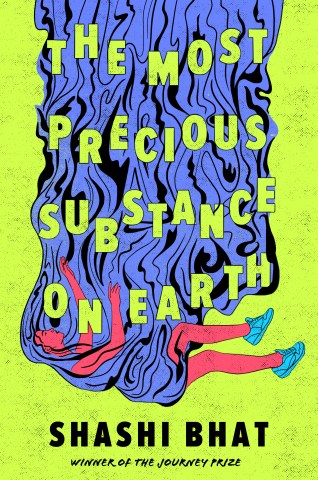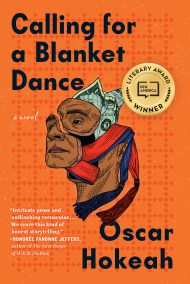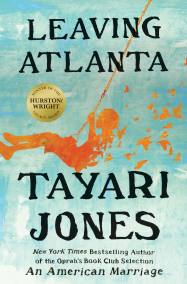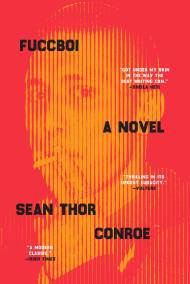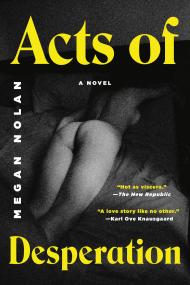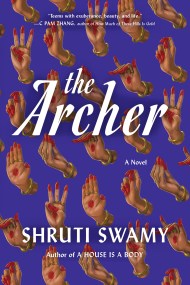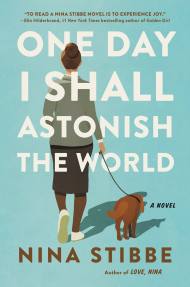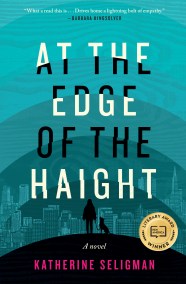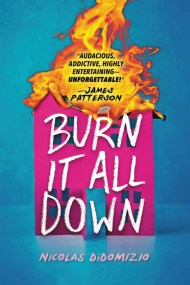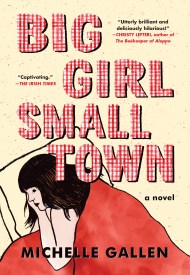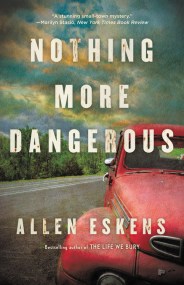Shopping Cart
The Most Precious Substance on Earth
Description
Bright, hilarious, and sensitive fourteen-year-old Nina spends her spare time reading Beowulf and flirting with an internet predator. She has a vicious crush on her English teacher, and her best friend Amy is slowly drifting away. Meanwhile, Nina’s mother tries to match her up with local Indian boys unfamiliar with her Saved by the Bell references, and Nina’s worried father has started reciting Hindu prayers outside her bedroom door. Beginning with a disturbing incident at her high school, The Most Precious Substance on Earth tells stories of Nina’s life from the ‘90s to present day, when she returns to the classroom as a high school teacher with a haunting secret and discovers that the past is never far behind her.
Darkly funny, deeply affecting, unsettling, and at times even shocking, Shashi Bhat’s irresistible novel-in-stories examines the relationships between those who take and those who have something taken. The Most Precious Substance on Earth is a sharp-edged and devastating look at how women are conditioned to hide their trauma and suppress their fear, loneliness, and anger, and an unforgettable portrait of how silence can shape a life.
What's Inside
Why I Read Beowulf
I started reading Beowulf about a week ago, not because it was on the syllabus, but because I am in love with my English teacher. I would read anything for him. The book’s cover is stark and grayscale, a black background with the title in white block letters. Below the title is the outline of a man, but just his top half—like a passport photo, except the outline is filled with silver chainmail. I keep turning back to this picture on the cover and wondering how they made it look three-dimensional, half expecting the pattern of metal to bulge into discernable features, to turn into a man’s face.
Once I finish the book, I will drop casual references to it in class or at English Club meetings. “This reminds me of my favorite epic poem,” I will say, pretending I don’t know that it’s also my English teacher’s favorite epic poem, and then I will quote from it brilliantly, lingering on the alliteration. Mr. Mackenzie will pause, turning away from the blackboard to face me, still holding a piece of chalk in his hand. Sometimes, in my most reckless moments of imagination, I see him drop- ping the piece of chalk in amazement.
I am not sure yet exactly which passages I will quote. I’m only on page four, which I reached a few minutes ago, while sitting in the hallway outside the English office with my best friend, Amy. As per our routine, we arrived exactly forty-five minutes before the morning bell, by the side entrance closest to our lockers. We unloaded textbooks and binders and reloaded with different textbooks and binders, then wandered over to the English office, making ourselves comfortable on the ground beside the door while cackling over inside jokes we’ve shared since Grade 6. Today, as usual, I’m reading and Amy is peeling the varnish off the floor. The varnish lies in a loose coat over the hardwood, and cracks as we step over it. In the short time I’ve been attending Sir William Alexander High School, I’ve already seen so much of the building deteriorate; it seems like every day another part of it breaks off. Back in September, I bicycled by and looked at the school—at its heritage red brick and white trim, its tall, narrow windows, its spacious, dandelion-filled lawn—and I thought, with affec- tion, That is my high school, relishing the still-newness of Grade 9. Just at that moment, a piece of one of the window frames freed itself from its hinge and fell to the pavement.
Amy peels the varnish off the floor in patches all over the school. During lunch, she peels the floor of a second-floor alcove, where we eat with our legs crossed in front of us, sandwich bags in our laps, backs against the concrete walls. During fourth-period Phys Ed, she peels the floor in the gymnasium while we stretch, and then leaves the waxy scraps in small piles here and there. Later, when we’re made to do push-ups, people’s hands and shoes sometimes land on these piles and their limbs go sliding sideways. Eventually, the whole floor will be stripped bare.
Today, she’s taking breaks from peeling the floor to peel her breakfast orange, trying to unravel the skin in one long, unbroken strip.
“You’re getting floor germs on your orange,” I tell her.
“Um, excuse me, it’s a tangerine,” she says. “And I’m strengthening my immune system.” She wipes her hands on the pockets of her cargo pants. “I had a bowl of dirt instead of cereal this morning. Gravel instead of marshmallows.”
To the tune of the Cheerios jingle, I sing, “The one and only Gravel-O-oh-oh-oh-oh . . .”
“What was that?” She looks at me askance.
I cringe. Lately, she’s been resisting my banter. My word-play and cereal commercial parodies go unappreciated. These days, Amy seems to disagree just to disagree. Already this morning we had a difference of opinion on whether to eat at Tim Hortons or Pizza Corner after school.
Amy: “Sugar beats cheese.”
Me: “Dough beats sugar.”
Amy: “Tim Hortons has both sugar and dough.”
That gave me pause, so we invented a Dough-Sugar- Cheese version of Rock-Paper-Scissors and settled on going to the Halifax Brewery Market, which has all three.
Then we sparred over whether Americans have the right idea about making the drinking age twenty-one.
Amy: “If we were Americans, it’d be seven more years until we could celebrate our accomplishments with champagne.”
Me: “That’s two additional years for us to accomplish something.”
Next, we debated whether a mustache can make someone handsome.
Me: “Maybe . . . in the right light . . . on the right face . . .”
Amy: “No. Don’t be stupid.”
I can’t tell if it’s only in my head that our exchanges have grown pricklier. Did we always fall on opposite sides of an argument? I catch myself conceding, letting her have the power. A month ago, during March Break, Amy got a boyfriend. Now I worry she might drop me, like gym clothes turned pink in the wash, or a hair elastic that’s lost its stretch.
Mr. Mackenzie appears at the end of the hallway. As he walks toward the English office, I turn to page five of Beowulf. Amy deliberately flicks a big piece of varnish at me with her thumb and middle finger. So I go: “Amy, what’s wrong with you? Why do you always have to deface our school?”
Mr. Mackenzie nods down at us, unlocks the office, and shuts the door behind him.
Amy turns to me and says, at full volume, “At least I haven’t memorized every article of clothing owned by my English teacher.”
“Curse you, Amy,” I whisper-shout at her, trying to bury my smile. I cup the shards of floor varnish in my palms and drop them right on her head.
She laughs, shaking out her white-blond hair so the pieces scatter. Amy likes to joke that I spend so much time gazing at Mr. M that I must have his whole wardrobe memorized by now; except it’s not a joke, because I know that he owns six button-downs (three shades of blue, one white pinstriped, one cream, and one gray), and four pairs of beige-ish brown pants, and white athletic socks that show when he sits down. Only once have I seen him wear a pair of jeans, at the English Club fundraiser— a car wash to raise funds and awareness for the literature of the Augustan period. We used the money we made to buy used copies of Gulliver’s Travels and then we just handed them out to people on the street. Mr. M called it “Spreading the Word.” He smiled when he said it, his mouth an open oval, thumbs tucked into his front pockets like he was a cartoon cowboy. It took me the first half of the car wash to adjust to this new, jeans-wearing version of my English teacher, but then his effortlessness charmed me, and I decided that his casual style did not take away in the least from his devotion to our cause. When the bell rings, Amy gathers her stuff and waits while I write down today’s date and make a note underneath:
Cream button-down. One shoelace coming untied. I record these lists of clothing, and other thoughts and observations, in a sleek black pocket notebook like the kind Mr. M says Hemingway used to use.
That afternoon in class, I notice Mr. M’s socks slouched around his ankles. I dream of ducking down to the half-peeled floor, crawling under his desk, and pulling them up for him.
Because of all this pent-up sexual frustration, I’ve cultivated a new hobby: interacting with pedophiles in internet chatrooms. Or not pedophiles, but rather one pedophile in particular. His name is Ronald. We’ve been talking online for about a month. He asked me to think of him as my boyfriend, though he’s really more of a manfriend, because he is forty-one years old. When I told him I was fourteen, he replied, Your age is my age in reverse, as though that’s a sign we are meant to be. He says I’m exotic because of my Indian background, so I haven’t told him I was born in Halifax. Four or five days a week, after I’m done with school and English Club meetings, I go on internet dates with Ronald the Pedophile. We have serious discussions about the pros and cons of Netscape Navigator versus Internet Explorer, and about the proliferation and potential of the World Wide Web. Sometimes I send him neat facts I learned from my dad’s Encarta CD-ROM.
While I’m upstairs crafting chat messages to Ronald, my parents are downstairs praying. They have created a god room in the basement, where Hindu gods and goddesses hang in rows on the blue walls, staring out with placid expressions.
You are as beautiful as a goddess, Ronald wrote to me once, after describing himself as agnostic. I had sent him a link to the GeoCities page where Amy and I had posted photos of our- selves that we took with her dad’s new, outrageously expensive digital camera. We’re posing in our oversized gym uniforms out behind the school, miming model pouts I don’t think Ronald realizes are ironic. He studied the photos and told me that I’m infinitely more desirable than she is. I know this isn’t true. Amy, with her slight figure and fair hair framing her unsmiling face, looks like the young girl on the cover of a V. C. Andrews novel.
I let Ronald know that I regularly watch To Catch a Predator on Dateline, and now he’s into the show, too. There was one segment where the decoy thirteen-year-old invites the predator into a staged family home. The voice-over: “This is a house on an average street, in an average town. It could be your town. But there’s something very different about this place . . .” The predator enters wearing a large misshapen baseball cap atop his large shapeless head, unaware of the cameraman hiding behind the decorative curtain. The decoy chirps something about going to change into her bathing suit, and the predator smiles to himself and literally starts rubbing his hands together in anticipation, and I bet he has really dry hands. He has this backpack on that’s maybe too small for a grown man, and he takes that off and starts rifling through it. But before we find out what monstrous equipment he has in this backpack, Dateline correspondent Chris Hansen emerges from behind the decorative curtain and introduces himself, and the predator removes his cap and uses it to cover his face.
Don’t worry, my darling, Ronald said, after I synopsized the show, I am ten times the man he is. This made me question if Ronald knew how math works. Ten times a pedophile, I thought, as I examined the photos he’d sent me of himself. They featured no other people. Mostly they were of him leaning against a blank wall, his head distorted in a way that suggested he’d taken the photos himself with one out-stretched arm.
During tonight’s conversation with Ronald, he asks for my phone number. I’ve been trying to read Beowulf but am wondering if there might be a movie version I could watch instead, and if so, whether the script uses quotes from the Seamus Heaney translation. So I’m pushing the Ronald conversation window to the side of my screen to look this up on 1MDb, when he types, Are your parents home? Can I call you? What is your phone number? All three questions in a single message. I picture him sinking back into an ergonomic chair in front of his desktop as he waits for my reply. And, maybe due to daydreaming about Mr. M and all my unrequited emotions, I start imagining what would happen if I fell in love with Ronald the Pedophile. He lives in Dartmouth, so it wouldn’t be a long-distance relationship. Instead of internet dates, we could go on actual dates to local hotspots, and events like the Halifax International Busker Festival. We could climb to the top of Citadel Hill and take the historic guided tour— something I have always wanted to do, but Amy refuses to go with me. Would you visit Citadel Hill with me? I type, and Ronald replies, Yes, followed by an indecipherable emoticon. So I type my phone number in one swoop of momentum, without any spaces or dashes.
He dials the number just as quickly. The glossy red telephone on my desk rings, a screaming pair of lips. I let it ring four times, fanning myself madly with my copy of Beowulf, the chain mail face f luttering as I try to decide whether to answer the phone. If I don’t answer, the call will go to the answering machine, and Ronald will leave a message accessible to my parents, because this is our landline—for some reason they won’t get me a cellphone. Also, my parents are not at work or at the store or at a baseball game or wherever it is parents go when strangers call the house. While a weird man preys on their only child, my parents pray in the basement, singing light religious tunes in their atonal voices and clanging finger cymbals that compete with the ringing phone. At any moment, they might put down their xeroxed Sanskrit mantras and unfold their piously curled bodies to get up from the floor and answer it. I wonder if Ronald would pretend to be a salesman. I think if my parents pick up the phone, Ronald will probably never speak to me again. So I answer it.
There is no pause at all as I hear a soft, wheedling voice say, “You didn’t think I’d call, did you?” And then the door to my bedroom opens.
I see a man standing there, peering around the door frame at me with this slow grin and saying, “What do you want for dinner?” because the man is my father. I immediately hang up the phone and tell my dad rice is fine as always for dinner. He asks what I’ve been doing for the past hour, and I tell him I’ve been researching the incarnations of all the various Hindu gods.
“Oh-ho—wonderful, Nina,” he says, clicking his tongue in approval and giving me a thumbs-up. “Surely I believe you. After dinner I will have a quiz prepared, so get ready!” He walks out chanting the avatars of Vishnu.
The next day I’m at the school’s side entrance by 8:15 a.m., waiting to tell Amy about what happened with Ronald. I’ve been practicing telling her the story in my head, adding and deleting details to entertain her. “And then I gave him my phone number,” I’ll say, “and he actually called.” Amy will ask why I expected anything else, and I’ll shrug. She’ll ask what I’ll say if he phones again, and I’ll say I have no idea, and then together we’ll come up with a plan.
I wait until 8:45. Amy doesn’t show. She isn’t in Music either, or in Science. So when I walk into English class, I’m not expecting to see her. She’s there, though, just not in her usual desk in the second row, next to mine.
She’s sitting with her boyfriend, in the far corner, right below a poster that says, I before E except after C, except when your weird neighbor seizes a sleigh with eight feisty reindeer. The boyfriend’s name isn’t even worth mentioning. He was in my Grade 4 class, but everybody avoided him because he was the only kid in Grade 4 who admitted to masturbating. He would try to join conversations, but people ignored him, so he would just give up and stare at the wall. Then one day, he started talking to the wall, telling it things and asking it questions, like “Why won’t they talk to me?” and “All I have is you,” and so on. I bet he and Amy have similar conversations now.
Before Amy started dating him, and before I had fully fallen for Mr. M, we used to spend class time laughing fitfully and soundlessly behind our open notebooks. The first book assigned to us was Washington Square, which we both hated, so we left Post-it notes throughout the pages of our copies to warn off future readers. Our notes said things like I hate this book, and Don’t read any further, and Aunt Penniman is a flat character. Now I feel guilty for writing those Post-its and potentially ruining someone’s unbiased experience of Henry James, and I’ve thought about retrieving my copy from the library and removing them. I won’t though, because that would be like erasing our history, when already I can feel Amy slipping away.
It’s different from that time in elementary school when she dyed her hair with lime green Kool-Aid and turned cool for a week. That whole week she had her lunch on the long, low, mud-colored radiator at the front of the school where the cool kids sat in a stylish row—a gallery of spiked mohawks and half-shaved heads—while I ate in the cafeteria with all the other loser Grade 7s. When the Kool-Aid washed out, she came back. But I’m convinced that the romantic relationships of weird teens last forever. Weird teens know that they’ll never find better than each other. There’s proof of this in yearbooks: if you flip through a four-year set at the school library, there’s always that couple huddled by the lockers with their arms around each other—the gangly guy with the turtleneck and middle-parted hair and the girl with the Black Sabbath T-shirt, holding one hand up in a rock-on gesture. The following years they’re spotted in the backgrounds of other photos but with tighter or baggier pants and longer or shorter hair and more or less rocking on, and so it goes until you read the drippy messages in their grad profiles, announcing that they’ll be attending the same university accounting program. Neither is ever pictured with other friends. It might never be me and Amy sitting together and laughing again.
I sit by myself and spend the class trying to imagine Grendel from Beowulf and drawing pictures of him all over my notebook in red pen. I compile monster parts from fairy tales I’ve read: wide white teardrops instead of eyes; teeth protruding from stretching mouths; heads that nearly aren’t there, dissolving into the lines of the page. Their torsos are blocky six-packs, short and disproportionate to long muscular arms, skin like leaves bulging with visible veins; their legs attached to a pair of skeletal feet, leaving bony, blood-filled footprints. They stalk over the page of notes I’m supposed to be taking. I pencil a crowd of mesh-faced men into the bottom right corner, axes and daggers cast uselessly aside, knees curl- ing under them like paperclips.
Mr. Mackenzie writes Mock heroic on the board and under-lines it twice. In the background I hear someone call him “O Captain! My Captain!” because he is one of those teachers who tears up textbooks and says there shouldn’t be a rubric for poetry. Mr. M delivers an impassioned speech about some Alexander Pope poem. He asks me a question, but since I’ve been drawing monsters instead of paying attention, I only know that the poem has something to do with haircuts. I curse myself for not listening and wonder if this is karma for the time I invented a Hindu holiday as an excuse to skip school.
“Disappointing,” says Mr. M, and his head tilts sideways under the weight of his disappointment. “You have to do the reading,” he tells me, “or there’s no point in coming to class.”
I want to tell him that I have done the reading—I’ve done more reading than any of these fools—but he turns back to the blackboard and makes a joke about how his wife never reads any books either, with the exception of Harlequin romances.
Mr. Mackenzie doesn’t seem to notice the romance corner of the room, where Amy and her boyfriend are caressing each other’s faces. I imagine them framed in a circle on a red paper-back cover. In an article on the web, I read that if a boy touches your face, it means it’s true love. I read a lot of these articles and they always have useful advice.
The boyfriend bends his neck to lay his head on Amy’s shoulder. With his googly eyes shut, he’s almost handsome. It’s the one time I’ve seen him look anything other than stupid. The only person’s head I can remember being that close to mine is my mother’s. It’s painful trying not to yearn for that peculiar, intimate warmth of a human skull pressing against you. Amy sighs her chin into the boyfriend’s palm. She pulls at his nose and he embeds his fingertips into her cheeks. I worry that they will gouge each other’s eyes out.
I wait for Amy by the side entrance after school as I always do, though I’m doubtful that she’ll show up. After ten or so minutes, I give up and duck into the library. Nobody’s using the computers, so I sign into my chatroom account. My screenname is Hrothgar14, though in retrospect, I probably didn’t need the 14. I search for Ronald.
What a terrible day, I write to Ron1956.
You’re early, he replies. What happened?
Amy ditched me for her boyfriend, I type, and then, because it’s not like I’m in a committed relationship with this internet pedophile, I tell him that I have a crush on my middle-aged English teacher and about my moment of embarrassing inattention in class.
After a pause, Ronald types, Pretend I’m him.
I suppose what Ronald wants me to do is to enact a sexual fantasy I have about Mr. M via the internet. It’s true that I spend much of class time and my own time fantasizing about my English teacher. I imagine us in a warm fireplaced room with burgundy wallpaper and claw-footed furniture, but we’ve disdained this furniture to sit on the floor. We read to each other from a copy of Beowulf—Mr. M holding the book as I turn its pages. Our heads are pressed together, and my hair is draped over one of his shoulders. In this fantasy I have flaxen hair despite being Indian, and I’m wearing an empire-waist gown and a wreath of flowers on my head. Mr. M is dressed similarly in eighteenth-century garb, like maybe a navy waistcoat and white pantaloons. We sip from glasses of wine . . . no, goblets of wine . . . no, chalices of wine, and we’re uttering guttural words to each other in Middle English. The fireplace f lashes behind us like an unanswered chat window.
The problem with these fantasies is that I never actually get past the reading part, so I don’t know what I’m supposed to describe to Ronald. To diffuse the situation, I type the letters LOL.
What’s so funny? Ronald asks.
I try to think of something provocative to ask him. I write, How old were you when you lost your virginity?
There’s a long pause before he responds, Haven’t we had this conversation before? Which doesn’t make sense because Ronald and I have certainly never had this conversation before, or even this kind of conversation. Our imaginary dates have remained pretty tame and educational, what with my Encarta facts. It occurs to me that I am not the only teenager Ronald talks to on the internet.
He starts typing long strings of barely legible text filled with a shocking number of typos. It’s sort of sickening, and I feel a cloud mushrooming under my ribcage as I realize he’s describing all the things he’s going to do to me, except I don’t understand most of the terms. I open up a separate window to look them up on Urban Dictionary.
He begs for a response. I’m thinking of his pictures and how he could be a guy that works at my dad’s office. My dad could be right there in an adjacent cubicle, entering formulas into his computer with the Lord Ganesha desktop wallpaper, working overtime for the money to send his daughter to medical school. I haven’t yet told him that I plan to get an English degree and specialize in pre-1800 literature.
Ronald’s words grow more garbled. He’s employed the F-word at least four times. Then there’s a pause. He must be waiting for me to say something. I consider the keyboard and then type the letter m repeatedly so it seems as though I’m moaning, and I follow it with exactly seven exclamation points.
You are so beautiful, Ronald types, though he spells beautiful wrong. I assume he’s looking at my pictures. He says, Are you still having a terrible day? Let me come over and comfort you.
Through the library door, I see Amy and her boyfriend in the hallway. They are facing each other, hunched over sideways as they peel the floor together, in a long, unbroken strip. They move slowly, focused on the ribbon of varnish that passes through their collaborating hands and curls and trails behind them.
It’s possible that Ronald is talking to four different girls right now, four different fourteen-year-olds typing covertly in their high school libraries before catching the bus home. One by one they must sign off, until he’s left with a single girl who . . . does what? Answers the phone and talks to him? Invites him home?
Okay, I type to Ronald, I can be home in fifteen minutes. I give him my address to enter into MapQuest.
I can’t wait to see you, he types. I don’t let myself think about what he means by the word see.
As I leave the library, I spot Amy and the boyfriend turn- ing the corner at the end of the hall. I head in the other direction, toward my locker. On the way, I notice the door of the English office is partway open.
When I knock on the door, Mr. Mackenzie tells me to come inside. I shut the door behind me and begin speaking without making eye contact. I count the posters of authors that line the top third of the room’s walls.
“I just wanted to apologize for class today,” I say to him. He’s wearing one of his blue shirts and standing, half resting on the desk. The other English teachers have all left. I realize I’ve never been alone in a room with Mr. M.
“That’s all right,” he says in his infinitely understanding way. “You’ve just got to stop being distracted in class. I know you love this stuff.”
My backpack almost drops from my shoulders when I hear him use the word love. I walk up to him and say, “I do love this stuff. I love books. I’m even trying to get through Beowulf, though I admit it’s going a little slowly . . .”
Mr. M has chalk dust on the pocket of his shirt. I reach across the arm’s length between us and brush the chalk off the fabric with my fingers. He frowns in a way I haven’t seen him do before, the skin of his eyebrows pulling together and downward.
Here is where it’s like the CD skips—a glitch in time. He lifts the shoulder straps of my backpack and slides them off my arms. He picks me up as the backpack thumps to the floor, and places me on the edge of the desk. The lights in the room are white rectangles in rows across the ceiling, and I look at them because I’m not sure if I’m supposed to look at Mr. M, whose head I want to hold in my hands, but I have this awful feeling that the second I touch his face, his features will turn to chain mail, the metal cutting the tips of my fingers. He pushes his head close to my neck and when he exhales, he smells like coffee, like cough drops, like an old man. He places my hands on the crotch of his pants, and I realize I am supposed to unbutton them. And so I do, very carefully and very slowly, recognizing the beige-ish fabric of the pants; they’re one of the articles of clothing I have memorized and written down in my notebook, where I also keep track of my mom’s invented idioms and my better homework grades, and where I record when a day is particularly beautiful. He moves one hand to grab my upper thigh, and the other hand under my shirt to grip my naked spine like it’s the spine of a Norton Anthology.
I think of five things: Thought number one is of all the times I’ve seen him pick up a book in class and slam it face-down, pages spread open on the table. Thought two is wondering how far around the school hallways Amy and her boyfriend have gotten, hand in hand and laughing. Thought three is Ronald searching my neighborhood for house number 53, parking in my empty driveway, and pressing the round white doorbell, thinking he’s about to rape some stupid little girl. Four, I hope my parents arrive home soon, so when this is over, I can phone them to pick me up. And five, I remember the time I overheard Mr. Mackenzie saying to another male teacher, “What a dog,” in reference to a girl, an expression I didn’t know people still used. It had taken me a moment to realize what he meant, before I convinced myself that I must have misheard him, before I pictured the head of a dog on a female human body, sad-faced and teeth bared.
